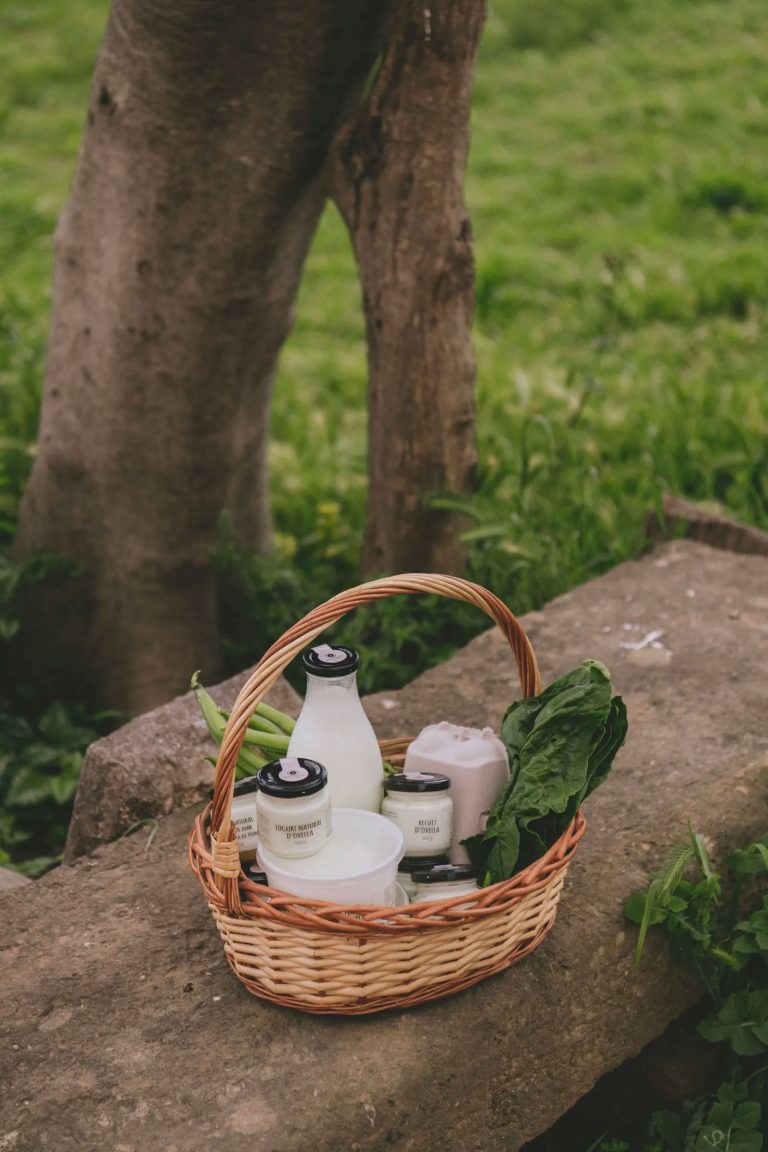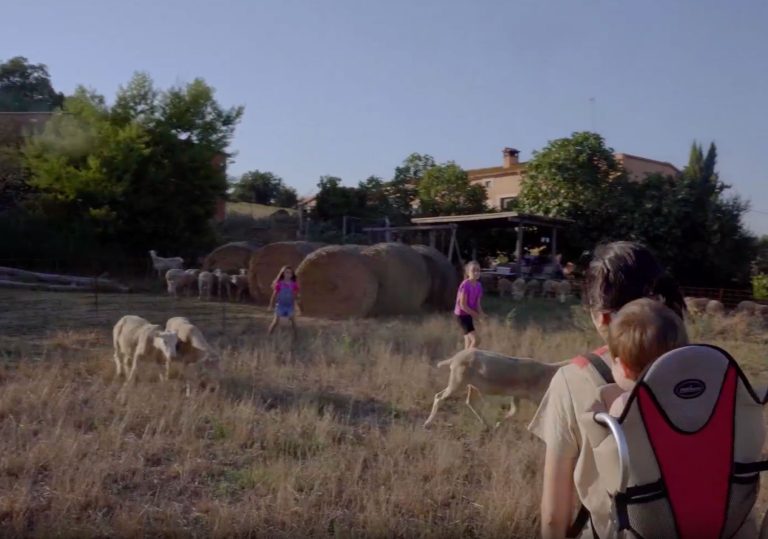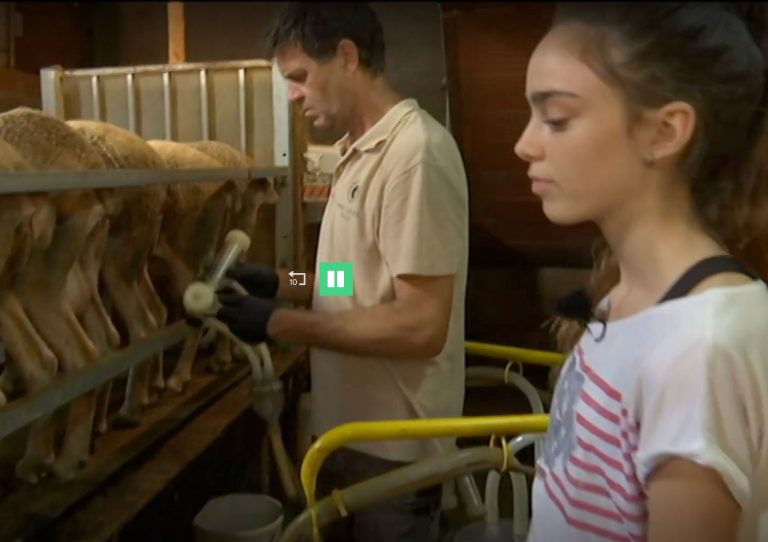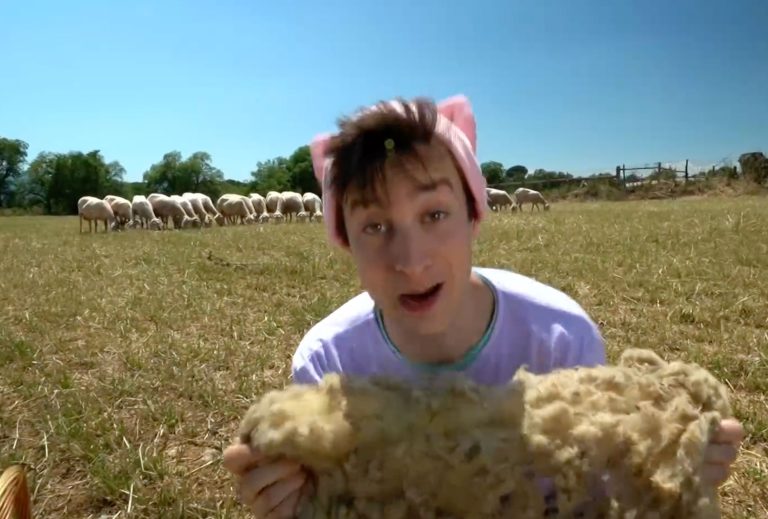Sheep's milk, the base material for a line of cosmetic products from the Baix Empordà
PEP CORRAL/ Next to the center of Cruïlles, one of the three that make up the municipality of Cruïlles, Monells and Sant Sadurní de l'Heura (Baix Empordà), there is a farmhouse built as a small family community with the aim of be the more self-sufficient the better. This is Mas Casas, an operation born from a family flock of sheep that, a couple of years ago, was reborn just before the outbreak of the covid-19 pandemic with a completely different approach to which he had had for decades.
Making a radical life change, Anna Pijuan and Salvi Casas reoriented, in January 2020, the family meat sheep business started by Casas' grandfather eight decades ago to adapt it to a variety of products and an environmental sensibility more in line with the current times and which has its main distinguishing feature in natural wool and the marketing of cosmetic products made from sheep's milk.
This is how it was born, describes Pijuan, 'a business based on four pillars' which are respect for the environment, fitting into the community, commitment to the component and family work and, obviously, the economic viability of the project .
FAMILY PROJECT • Following this idea, Anna Pijuan highlights the character of Mas Casas as a family business formed by herself, Salvi Casas, her daughters and specific and specific collaborations of other family members in tasks such as the design of the graphic image of the business or the making of labels and packaging.
A familiar dimension, however, which does not imply that this is a closed project. Thus, explains its manager, from the very beginning one of the objectives of Mas Casas has been to open its doors to collaboration and the creation of links with the residents of the area in tasks such as tending the garden , the vineyard and community fruit trees included within the estate. Collaborations, however, that do not include the presence or treatment of sheep, to avoid health risks and stress on livestock.
The collaboration activities, he adds, are also focused as tourist activities and open to people who want to know first hand what it's like to work on a farm of this type.
COSMETICS • Mas Casas has a herd of around 80 sheep of the Lacaune breed focused on the production of milk that they sell both in liquid form (to drink it directly or to transform it into derivatives, such as cheeses, annealed or kefir) and in the form of cosmetic products obtained based on this product.
The bet on this line was born, says Pijuan, looking for an outlet for the wool obtained once the sheep were sheared. Looking for information they discovered that in the Nordic countries it is quite common to use wool as a sponge surrounding a bar of soap which, little by little, fell apart until only the fiber was left. It was looking for the creation of an element of this kind when the owners of the farm entered a laboratory that urged them to expand the range slightly to create packages that, apart from bar soap, also include gel soap and moisturizing cream A line of products that they sell in a small shop they have in La Bisbal d'Empordà, in several local shops in the area between Girona and Palamós and also on their website. The list of products sold by the farm also includes precisely the wool produced by the farm's sheep. A wool, this one, which they sell in clean form to make fillings, pillows and mattresses and in raw form for use in agriculture as an alternative to pine bark or straw to absorb irrigation water and maintain moisture of the earth for the plants. A whole variety of applications for a product that, for some time, Pijuan has studied in detail to the point of finalizing a book on this subject.
OBJECTIVE • For Anna Pijuan, the activity on the farm is inseparable from her and Salvi Casas's commitment to caring for the environment. Thus, the owners of the farm underline the work of the sector in a context of environmental emergency such as the current one by defining livestock farmers as 'an active and very important part in the fight against climate change'.
A task, this one, that they illustrate with the maintenance work that the cattle do by cleaning the undergrowth and, in the case of the farm, also by the methods they use to get grass to feed the sheep in the different meadows where they graze rotating and for obtaining food in other parts of the farm, such as the garden or the vineyard.
Practices that are all typical of regenerative agriculture and that Pijuan emphasizes are worked from permaculture with the aim of contributing to the mitigation of climate change and the fixation of carbon in the soil and that are added to the use of renewable energies in the day-to-day life of the farm and the use of renewable materials when making the packaging in which they market their products. All in all, summarizes Anna Pijuan, with the intention that the Mas Casas project will leave 'a bigger mark on people than on the environment'.
NOTE: This report was prepared days before the hailstorm on August 30 that affected the Baix Empordà and caused damage to several properties, including Mas Casas. For this reason, the farm has launched a micro-patronage campaign to recover from the wreckage.
More information:
https://uniopagesos.cat/la-terra/llet-dovella-la-materia-base-duna-linia-de-productes-cosmetics-del-baix-emporda/









